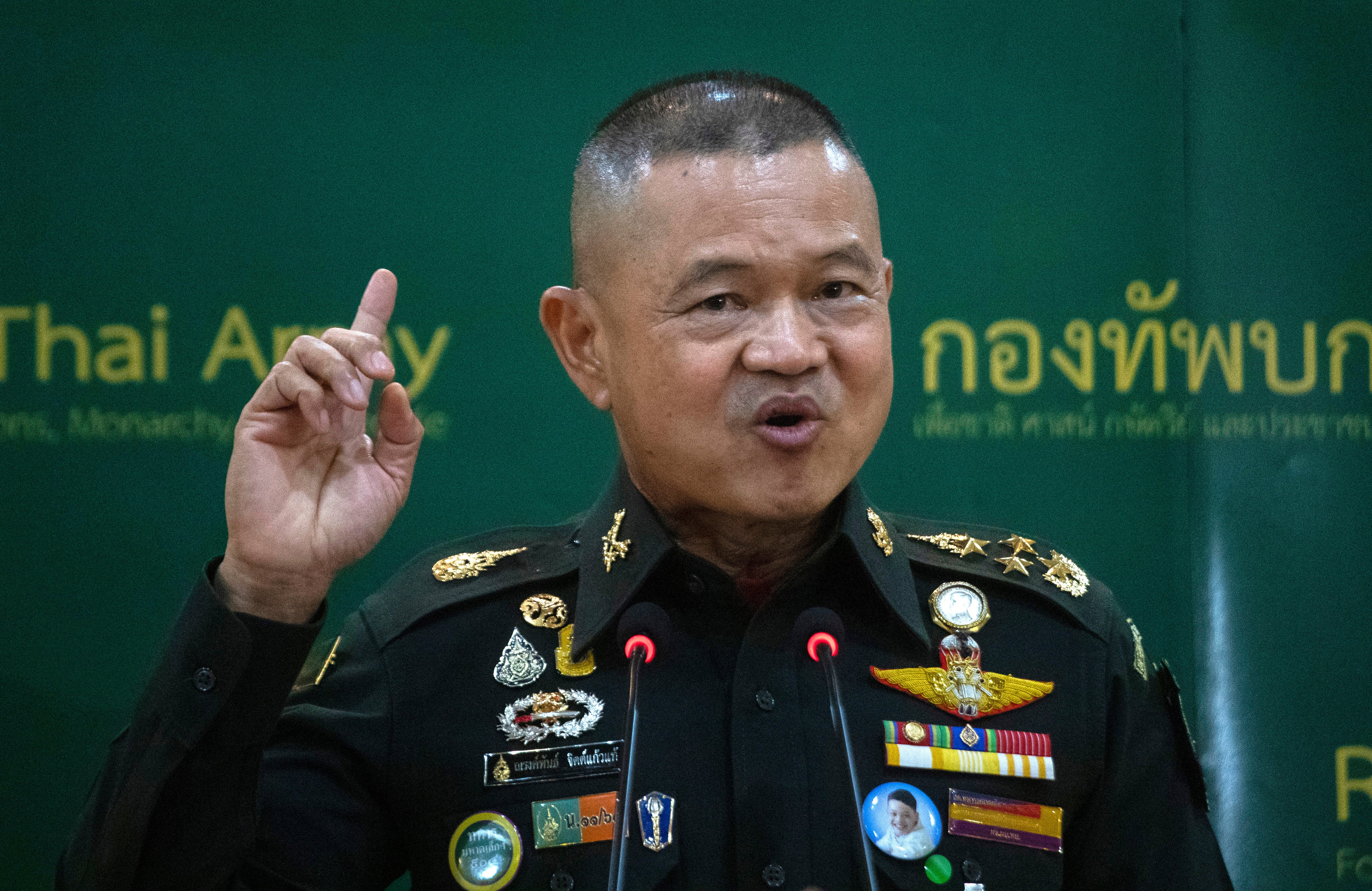New Thai army commander defends monarchy with softer line
Thailand’s new army chief has made the traditional pledge to defend the country, the Buddhist religion, the monarchy and the people, but seemed to take a softer line than his predecessor toward dissenting political voices

Your support helps us to tell the story
From reproductive rights to climate change to Big Tech, The Independent is on the ground when the story is developing. Whether it's investigating the financials of Elon Musk's pro-Trump PAC or producing our latest documentary, 'The A Word', which shines a light on the American women fighting for reproductive rights, we know how important it is to parse out the facts from the messaging.
At such a critical moment in US history, we need reporters on the ground. Your donation allows us to keep sending journalists to speak to both sides of the story.
The Independent is trusted by Americans across the entire political spectrum. And unlike many other quality news outlets, we choose not to lock Americans out of our reporting and analysis with paywalls. We believe quality journalism should be available to everyone, paid for by those who can afford it.
Your support makes all the difference.Thailan ’s new army chief on Tuesday made the traditional pledge to defend the country the Buddhist religion, the monarchy and the people, but seemed to take a softer line than his predecessor toward dissenting political voices.
Gen. Narongpan Jittkaewtae took his post on Oct. 1 in an annual military reshuffle as the government faces a challenge from mass protests that include unprecedented calls for reforms to the revered institution of the monarchy. The position of army commander carries enormous political influence, since the military has staged more than a dozen successful coups since Thailand became a constitutional monarchy in 1932.
Speaking at his first news conference, Narongpan did not directly criticize the protesters for their beliefs, instead warning they must respect the rights of others and accept the consequences if they violate the law.
Asked whether the protesters' 10-point manifesto for royal-related reforms is a threat to the monarchy, Narongpan avoided a direct answer, declaring that reform is a positive thing but everyone should look at themselves first before asking others to change. He said Thai society should have tolerance for people with different beliefs.
Narongpan’s predecessor, Gen. Apirat Kongsompong, was an outspoken royalist who harshly criticized the mostly young protest leaders, telling an audience of military cadets that “COVID-19 can be cured ... but the disease that cannot be cured is the hatred of the nation.” He was appointed to a senior position at the royal palace after his retirement.
Thailand has a lese majeste law that makes defaming the monarchy punishable by three to 15 years in prison, though none of the current protest leaders have yet been formally charged with the offense.
Narongpan, 57, hedged when asked about the possibility of another military coup. There are no indications that one is in the offing, but the threat is always present, with the last two occurring in 2006 and 2012.
“The chance of coup making is zero if based on the fact that no groups are creating a situation or a violent conflict that causes suffering. I urge everyone to be positive, getting rid of any factors that could lead to such a situation, making the chance of a coup to be less than zero,” he said.